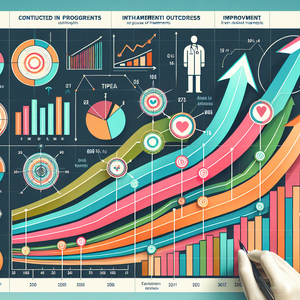The Future of Healthcare Leadership: Embracing Change in an Evolving Landscape

Technology is reshaping the healthcare landscape. Tools like Electronic Health Records (EHR) and Artificial Intelligence (AI) are revolutionizing service delivery and management. Healthcare administrators are central to the successful implementation of these technologies, ensuring systems are user-friendly and compliant with healthcare regulations. For instance, AI-driven analytics can help predict patient admission rates, optimize staffing levels, and allocate resources more effectively. The use of machine learning algorithms allows administrators to analyze vast amounts of data, offering insights that facilitate evidence-based decision-making. Not only must healthcare leaders be tech-savvy, but they also need to be adaptable, continually learning and evolving alongside new tools and systems. This agility is crucial for maintaining operational effectiveness and enhancing patient outcomes.
Telehealth: A Game Changer for Patient Care
The COVID-19 pandemic catalyzed the adoption of telehealth services, enabling healthcare providers to offer care while minimizing the risk of virus transmission. As telehealth becomes a staple of the healthcare system, administrators face the challenge of overcoming logistical and regulatory hurdles. Telehealth has significantly increased access to care, particularly for patients in rural areas or those with mobility issues. To effectively implement telehealth, administrators must develop robust protocols, train staff, and ensure that patients are equipped with the necessary resources to utilize these services. A proactive approach to telehealth can boost patient satisfaction and retention while opening new avenues for healthcare organizations to expand their services and reach. For example, organizations like Teladoc Health have successfully integrated telehealth into their service offerings, demonstrating improved patient engagement and outcomes. By investing in telehealth infrastructure and training, healthcare leaders can enhance the overall patient experience while maintaining safety and convenience.
Data Analytics: Driving Informed Decision-Making
In today’s data-driven world, healthcare administrators are increasingly tasked with harnessing analytics to inform strategic decision-making. The ability to analyze patient data, operational metrics, and financial statistics can lead to improved resource allocation, enhanced patient experiences, and better organizational performance. Predictive analytics plays a crucial role in identifying at-risk patient populations, enabling administrators to implement targeted interventions that can significantly improve health outcomes. For instance, healthcare systems that employ data mining techniques can identify patterns in patient behavior, leading to timely and effective care. Moreover, data analytics allows administrators to assess the effectiveness of various programs and initiatives, ensuring resources are allocated to the most impactful solutions. Fostering a data-driven culture empowers healthcare leaders and their teams to make informed, evidence-based decisions that benefit both patients and the organization.
The Evolving Role of Healthcare Administrators
As the healthcare landscape continues to evolve, the role of healthcare administrators is transforming from mere management to strategic leadership. Today’s healthcare leaders must possess a diverse skill set that includes emotional intelligence, strategic thinking, and effective communication. In an increasingly patient-centered environment, administrators must advocate for the voices of patients and frontline staff, fostering an inclusive culture where feedback is valued. By promoting collaboration and teamwork, healthcare leaders can enhance both employee satisfaction and patient care. For example, organizations that prioritize staff input in decision-making processes often see improvements in job satisfaction and retention rates, which ultimately translates into better patient care. The emergence of Doctor of Healthcare Administration (DHA) programs reflects this shift in leadership expectations. These programs equip aspiring leaders with the skills and knowledge necessary to navigate the complexities of modern healthcare management, emphasizing the importance of strategic leadership and innovative problem-solving.
The future of healthcare leadership is filled with both challenges and opportunities. As technology, telehealth, and data analytics continue to transform the industry, healthcare administrators must embrace these changes and adapt their strategies to thrive in this evolving landscape. By leveraging advancements in technology and fostering a culture of collaboration and data-driven decision-making, administrators can lead their organizations toward improved patient outcomes, operational efficiency, and resilience in the face of future challenges. The journey ahead will require continuous learning and adaptation, but those who rise to the occasion will undoubtedly contribute to a brighter future for healthcare.
Healthcare Data Analyst
Kaiser Permanente, Deloitte, Epic Systems
Core Responsibilities
Analyze healthcare data to identify trends and improve patient outcomes, utilizing predictive modeling techniques.
Collaborate with clinical teams to develop actionable insights that optimize healthcare delivery and resource allocation.
Prepare detailed reports and presentations on findings for stakeholders, ensuring clarity and usability.
Required Skills
Proficiency in statistical software (e.g., SAS, R, or Python) and data visualization tools (e.g., Tableau or Power BI).
Strong understanding of healthcare regulations and data governance practices.
Excellent communication skills to convey complex data insights to non-technical audiences.
Telehealth Program Manager
Teladoc Health, UnitedHealth Group
Core Responsibilities
Oversee the implementation and management of telehealth services, ensuring compliance with healthcare regulations and standards.
Develop training programs for healthcare providers and staff to effectively utilize telehealth technologies.
Monitor and evaluate telehealth program performance, making data-driven adjustments to improve service delivery.
Required Skills
Experience in project management with a focus on healthcare initiatives, preferably with telehealth experience.
Familiarity with telehealth platforms and software, as well as understanding of HIPAA regulations.
Strong problem-solving and interpersonal skills to address logistical challenges and enhance patient experience.
Healthcare Administrator (with a focus on Strategic Leadership)
HCA Healthcare, community health organizations, academic medical centers
Core Responsibilities
Lead organizational strategy and operations to improve healthcare delivery, patient satisfaction, and financial performance.
Foster a culture of collaboration, engaging with staff at all levels to gather insights and improve processes.
Ensure compliance with healthcare laws, regulations, and accreditation standards while seeking opportunities for innovation.
Required Skills
A Master’s degree in Healthcare Administration (MHA) or a related field; a Doctorate (DHA) is a plus.
Strong leadership skills with a track record of managing multi-disciplinary teams and driving change.
Exceptional communication and emotional intelligence to navigate complex relationships within the organization.
Chief Information Officer (CIO) in Healthcare
Mayo Clinic, Cleveland Clinic
Core Responsibilities
Lead the development and implementation of information technology strategies that enhance patient care and organizational efficiency.
Manage IT infrastructure, including EHR systems, ensuring they meet the needs of clinicians and comply with regulations.
Drive innovation through the adoption of emerging technologies, such as AI and machine learning in healthcare applications.
Required Skills
Extensive experience in IT management within a healthcare setting, with a solid understanding of healthcare informatics.
Proven ability to manage large-scale IT projects and budgets.
Strong leadership and strategic planning skills, along with a focus on user experience and operational excellence.
Quality Improvement Coordinator
The Joint Commission
Core Responsibilities
Design and implement quality improvement initiatives aimed at enhancing patient care and operational effectiveness.
Collect and analyze data on healthcare outcomes and process efficiency, making recommendations for improvement.
Collaborate with clinical staff to develop and monitor compliance with quality standards and best practices.
Required Skills
Knowledge of quality improvement methodologies (e.g., Lean, Six Sigma) and healthcare accreditation standards.
Strong analytical skills with proficiency in data analysis software.
Excellent interpersonal skills to effectively lead teams and engage stakeholders in quality initiatives.


